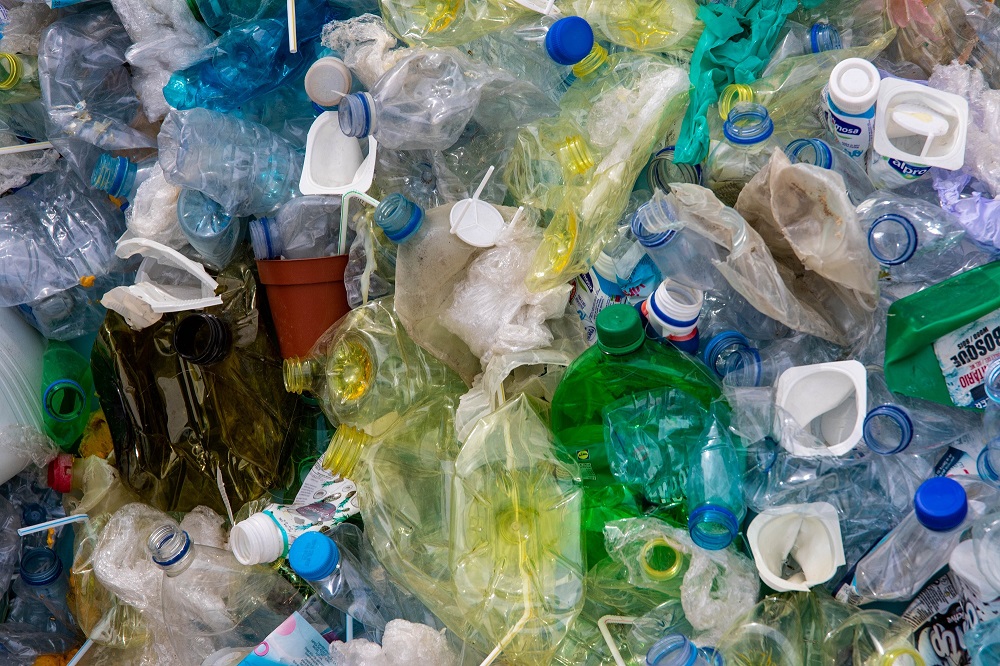
February 12, 2021 Friday

Photo from pexels.com.
MANILA, 13 February 2021 — Sixty one bills in the House of Representatives seeking to phase-out or regulate single-use plastics were tackled in a technical working group chaired by Rep. Francisco "Kiko" Benitez under the House of Representatives Committee on Ecology last Thursday, February 11.
According to Rep. Benitez, "This legislation is a critical, concrete step towards a circular economy. There are products that we can immediately ban. But for products that are not easily replaceable, we must give manufacturers time to produce alternatives and diversify."
He emphasized the need to consult all stakeholders from the sectors that will be affected, in view of the wide range of products to be covered by the bills such as plastic straws for drinks, plastic coffee stirrers, plastic bags of thickness below 50 microns, plastic cups and cutlery, containers of polystyrene, balloons and candy sticks, buntings, and confetti.
Deputy Speaker Loren Legarda, as co-author, also expressed strong support for the immediate passage of the legislative measure regulating and prohibiting single-use plastics.
“We have seen with our own eyes and we have known for some time that single-use plastics have a negative impact on the environment. This is even more problematic in our flood-prone areas, where plastic wastes clog our sewerage systems. The issue isn’t just that plastic bags take forever to disintegrate, it is the massive number of plastics Filipinos use and quickly throw away. These plastics are choking the life out of our oceans and forests and polluting our communities,” Legarda said.
Legarda, a three-term Senator and representative of the Lone District of Antique, said that the complete eradication of single-use plastics, a term commonly referring to disposable plastic items that are thrown after one-time use, must be supported as an environmentally-conscious solution to the plastic crisis.
Among the principal authors of various House bills that seek to regulate the use of plastics are House Speaker Lord Allan Jay Velasco, Deputy Speakers Legarda and Rufus Rodriguez, Representatives Bernadette Herrera-Dy, Bienvenido Abante Jr., Lorenz Defensor, Ria Christian Fariñas, Rudys Caesar Fariñas Farinas I, Kristine Alexie Tutor, Manuel Cabochan III, Lawrence Fortun, Geraldine Roman, Robert Ace Barbers, Rozzano Rufino Biazon, Greg Gasataya, Luis Raymond Villafuerte Jr., Estrellita Suansing, Horacio Suansing Jr., Jumel Anthony Espino, Precious Castelo, Joy Myra Tambunting, Angelo Marcos Barba, Jose Teves Jr., Florencio Noel, Rodrigo Abellanosa, Eric Yap, Paolo Z. Duterte, Josefina Tallado, Ramon Guico III, Jose Antonio Sy-Alvarado, Alberto Pacquiao, Francisco Jose Matugas II, John Marvin Nieto, Aleta Suarez, Anna Marie Villaraza-Suarez, Frederick Siao, and Mark Go.
As the principal author of Republic Act No. 9003 or the Ecological Solid Waste Management Law of 2000, Legarda suggested that instead of "disposable" plastics, ready alternatives can be in the form of reusable ecobags, bamboo or wood utensils, or glass-based containers in homes. She added that companies must change their economic mindset, wasteful production processes and packaging methods, from the use of seemingly cost-effective plastics into investing in reusable and recyclable products which are more sustainable in the long run.
The Climate Change Commission (CCC), led by its Chairperson-designate Department of Finance Secretary Carlos G. Dominguez, supports the nationwide ban on single-use plastics as a vital component of a low-carbon economy and to advance sustainability, promote biodiversity, ensure food security, and curb pollution.
The climate body stressed that the passage of a legislative measure on this subject matter will further push policymakers to proactively review the implementation of existing environmental laws, such as the Clean Air Act (Republic Act or RA No. 8749), Ecological Solid Waste Management Act (RA 9003), Clean Water Act (RA 9275), and the Climate Change Act (9729) to ensure a more holistic, sustainable, and inclusive recovery of our communities and the environment.